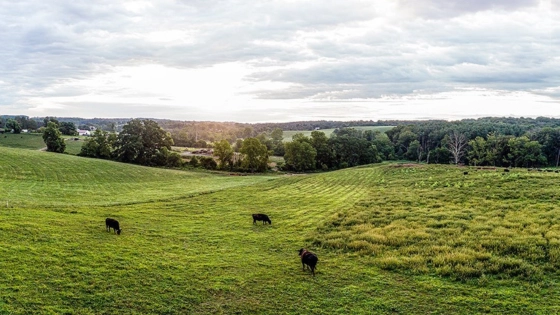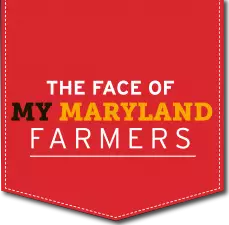 As far as most farms go in Maryland, Roseda Black Angus Farm in Monkton is fairly new. Founded by first-generation farmers, Ed and Rosemary Burchell, in 1996, the farm’s story is one of curiosity and the pursuit of quality.
As far as most farms go in Maryland, Roseda Black Angus Farm in Monkton is fairly new. Founded by first-generation farmers, Ed and Rosemary Burchell, in 1996, the farm’s story is one of curiosity and the pursuit of quality.
Before he became a cattleman, Ed was a Baltimore native with a background far removed from farming. After graduating from Loyola University in 1964, he served as a Second Lieutenant in Army Intelligence before launching a successful business career. When Ed sold his company in 1992, he wasn’t planning on starting another venture.
Fate saw things differently. While taking a boat ride along the Wye River with his wife, Ed saw a herd of Black Angus cattle grazing near the shoreline. He stopped and introduced himself to Dean Bryant. Dean was conducting research for Purdue University on breeding techniques for superior beef quality, and their conversation sparked Ed’s curiosity. “Dean had the data to show me that with certain genetics, you could raise high-quality Angus cattle,” he says.
Ed sourced genetics from Angus herds in Kansas and Idaho that have a proven track record for tenderness and marbling. By 1999, Roseda’s first cattle were on his property. The farm’s antibiotic and hormone-free beef stands out for its deep marbling, rich flavor and signature dry-aging process. Inspired by Rosemary’s father, who worked in the grocery business, Ed learned how to select the best carcasses and dry-age them to intensify their flavor. “Dry-aging is like brewing coffee,” Ed says. “The longer it sits, the more concentrated the flavor becomes.”
After trial and error, Ed found the sweet spot for dry-aging to be between 14 and 21 days, long enough to develop a bold, beefy taste while maintaining tenderness. Every carcass is dry-aged whole, ensuring consistency and quality across every cut.
Ed takes pride in doing everything “in-house.” He co-owns Old Line Custom Meat Company, which has two packing plants in Baltimore City. “That means Roseda’s beef is controlled every step from breeding and raising the cattle to butchering and packaging the meat all the way to your plate,” he says.
With around 600 head of cattle at any given time, Ed partners with 45 local farms, leasing out bulls for breeding and offering first rights on the calves that meet Roseda’s high standards.
The farm’s Monkton market, managed by Dean’s wife, Marcia, has become a local destination for beef lovers. What started as a few freezers in a barn has transformed into a 1,500-square-foot store housed in a restored historic building. The store attracts roughly 2,500 regular customers. “During the holidays, we sell more than 400 tenderloins,” Ed says. “And, customers come back for specialty cuts that you don’t usually see in the grocery store, like tri-tip, coulotte, bavette, hanger, flank and flat iron steaks.”
For Ed and Rosemary, that loyalty is the greatest reward. “We started Roseda because we wanted to do something different,” Ed says. “We wanted to create beef that people could feel good about eating — and once they taste it, they never forget it.”
Hungry for more? Look for a cattle farm near you. Read about a vet whose focus is on cow health.

